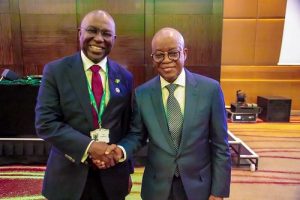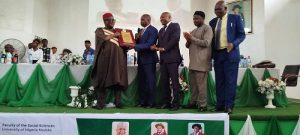W’Bank Says Power Supply Subsidy May Cost Nigeria N3.4tn

*Laments of worsening blackouts
The World Bank Wednesday raised alarm on the power supply subsidy in Nigeria, saying that it could cost the federal government .
Speaking to reporters in Abuja, officials of the bank said this would be the case if the current shortfall is not addressed.
Leading other world bank officials in an online discussion on “Fostering Knowledge-Sharing and Dialogue on Power Sector Issues in Nigeria”, Senior Energy Specialist, World Bank, Mr Muhammad Wakil spoke on the new commitment to balance fiscal space with tariff adjustments which ensures the prorection for the poor.
He said that many issues, among them the service based tariff option were still beng resolved.
He said the cumulative shortfall could be as up to N3.4 trillion.
He said that only 22 per cent of the poorest households were the ones that have access to electricity, adding that every N10 on meeting the tariff shortfall, N8 goes to the richer households who don’t need any assistance in paying their bills.
He explained that this was as a result of low investment in distribution network and metering of consumers.
Wakil said, “Nigeria now has the largest number of ‘unelectrified’ people globally and the trend is worsening. Of the electrified, the supply is very unreliable with widespread blackouts.”
The World Bank Wednesday raised alarm on the power supply subsidy in Nigeria, saying that it could cost the federal government .
Speaking to reporters in Abuja, officials of the bank said this would be the case if the current shortfall is not addressed.
Leading other world bank officials in an online discussion on “Fostering Knowledge-Sharing and Dialogue on Power Sector Issues in Nigeria”, Senior Energy Specialist, World Bank, Mr Muhammad Wakil spoke on the new commitment to balance fiscal space with tariff adjustments which ensures the prorection for the poor.
He said that many issues, among them the service based tariff option were still beng resolved.
He said the cumulative shortfall could be as up to N3.4 trillion.
He said that only 22 per cent of the poorest households were the ones that have access to electricity, adding that every N10 on meeting the tariff shortfall, N8 goes to the richer households who don’t need any assistance in paying their bills.
He explained that this was as a result of low investment in distribution network and metering of consumers.
Wakil said, “Nigeria now has the largest number of ‘unelectrified’ people globally and the trend is worsening. Of the electrified, the supply is very unreliable with widespread blackouts.”





